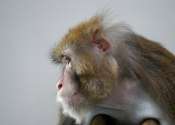To do or not to do: Cracking the code of motivation
Why do we do things? What persuades us to put an effort to achieve goals, however mundane? What, for instance, drives us to search for food? Neurologically, the answer is hidden in the reward system of the brain—an evolutionary ...
Aug 6, 2021
0
612









